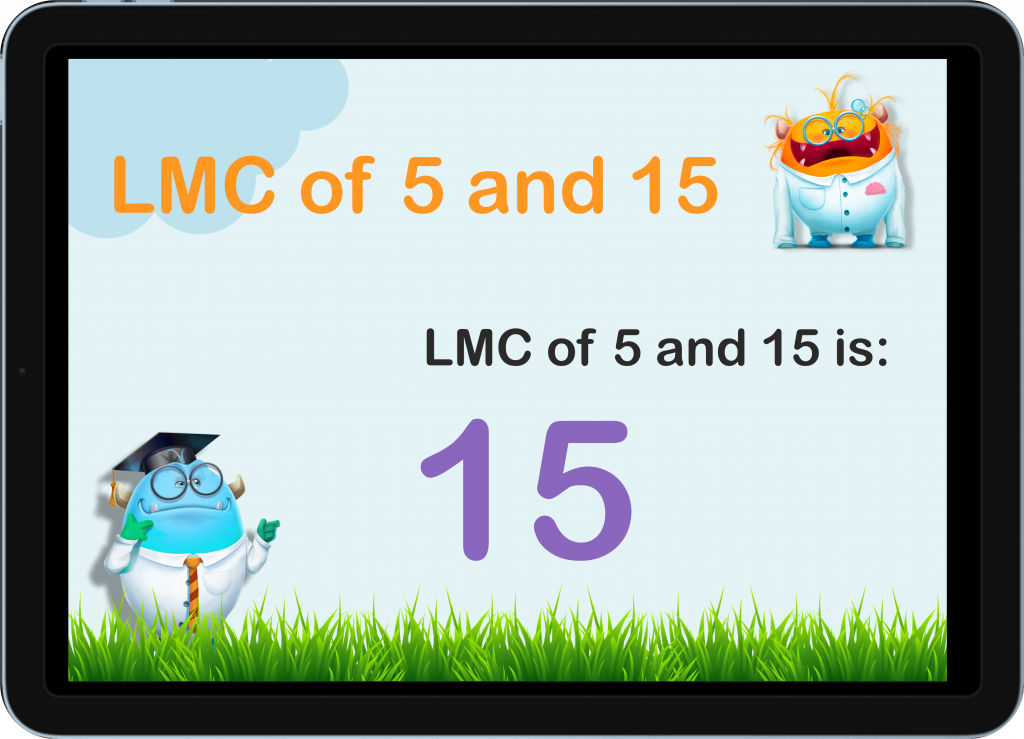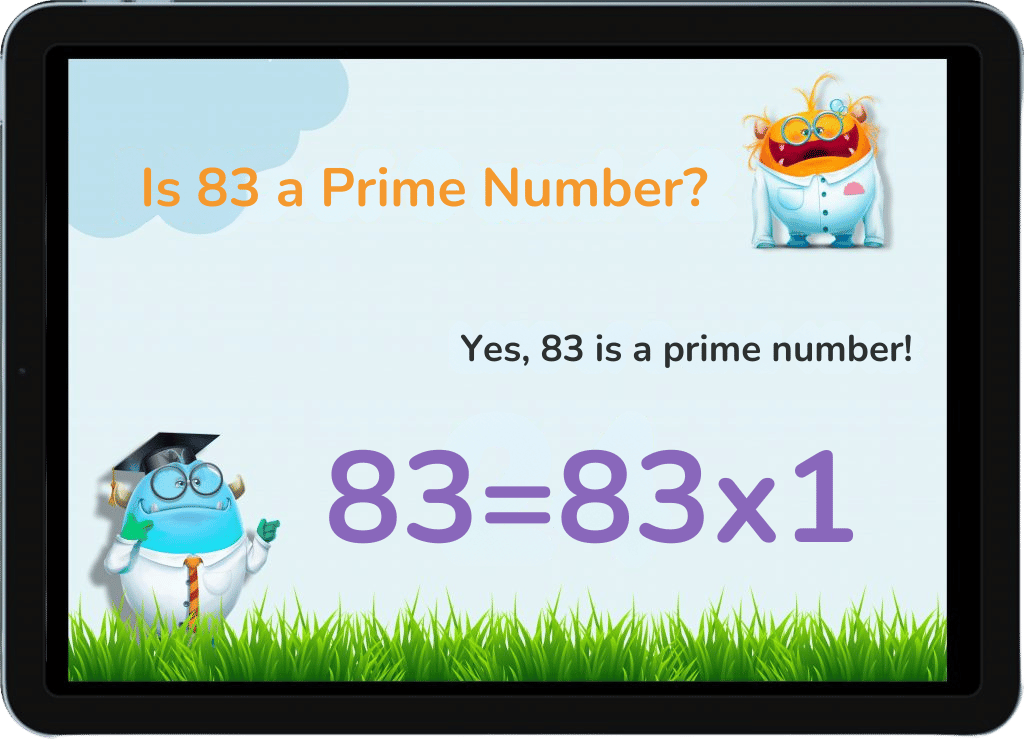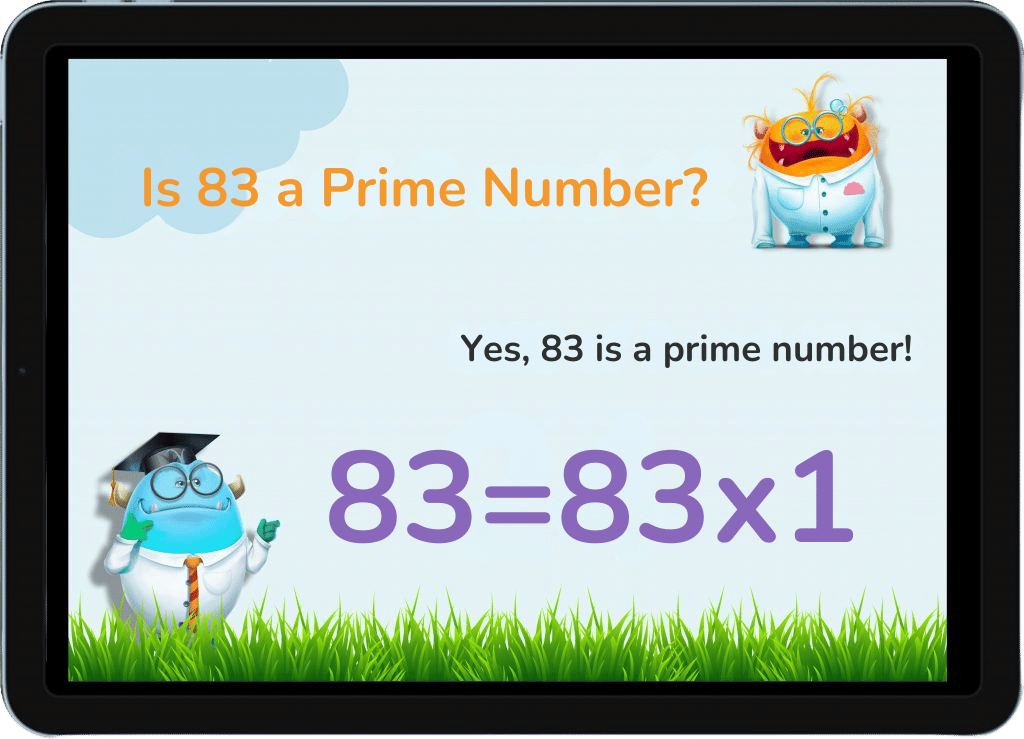Is 2 A Prime Number?
Prime vs. Composite Numbers
Greetings, young math enthusiasts! Today, let’s set sail on a mathematical voyage to determine if 2 is a prime number, and learn more about the difference between prime and composite numbers.

Is 83 a Prime Number?
Or Is 83 a Composite Number?


No credit card required

No credit card required
What Makes a Number a Prime Number?
Is 83 a Prime Number?
How to Determine if 83 is a Prime Number
How is 83 a Prime Number?
Prime Factorization of 83
Why is Number 83 So Special?
Is 83 a Twin Prime Number?
Is 83 a Cousin Prime Number?
Is 83 a Sexy Prime Number?
Is 83 a Composite Number?
What Makes a Number a Prime Number?
In the world of numbers, some are more unique than others.
Prime numbers are those special ones that can only be divided evenly by 1 and themselves. This means no matter how you try, you won’t be able to split them into smaller whole numbers.
Think of prime numbers as rare treasures in mathematics because they don’t fit neatly into the groups that other numbers do.
Is 83 a Prime Number?

Let’s focus on 83. It may seem like just another number, but it has a unique status in mathematics. Yes, 83 is a prime number. But how can we be sure? What sets 83 apart from other numbers?
How is 83 a Prime Number?
To understand why 83 is a prime number, we need to check if it can be divided evenly by any number other than 1 and itself. When you try dividing 83 by numbers like 2, 3, 4, 5, 6, 7, and so on, you’ll find that there’s always a remainder. This means 83 doesn’t share its value with any other number combinations, except with 1 and 83 itself. That’s what makes it a prime number.
How to Determine if 83 is a Prime Number
Discovering if a number is prime can be like solving an exciting puzzle. Here’s how you can do it:
- Divisibility by 2: If the number is even, it’s not prime (unless it’s 2). Since 83 is odd, it’s not divisible by 2.
- Divisibility by 3: Add the digits of the number. If the sum is divisible by 3, then the number is too. For 83, 8 + 3 equals 11, which isn’t divisible by 3.
- Divisibility by 5: Check if the number ends in 0 or 5. If it does, it’s divisible by 5. Since 83 ends in 3, it’s not divisible by 5.
- Check Other Primes: Continue checking divisibility by prime numbers up to the square root of 83 (about 9.1). You’ll see that none of them divide 83 without leaving a remainder.
By following these steps, you’ll find that 83 is indeed a prime number.
Prime Factorization of 83
Prime factorization means breaking down a number into its prime components. For some numbers, this can be a long process, but for 83, it’s quite simple. Since 83 is a prime number, it can only be written as 83 itself:
83=831
There are no other factors involved, making this straightforward and easy to remember.
Why is Number 83 So Special?
Prime numbers often have interesting stories and facts connected to them. Here are some fun facts about 83:
- 83 is the 23rd prime number: This sequence places it in a unique spot among other prime numbers.
- Sum of Consecutive Primes: 83 is the sum of three consecutive primes (23 + 29 + 31) and five consecutive primes (11 + 13 + 17 + 19 + 23).
- Sophie Germain Prime: 83 is a Sophie Germain prime, which means that 2 * 83 + 1 (167) is also prime.
- Safe Prime: 83 is a safe prime, meaning (83 – 1) / 2 (41) is also prime.
- Chen Prime: 83 is a Chen prime because 83 + 2 (85) is either a prime or a product of two primes.
- Eisenstein Prime: It’s an Eisenstein prime with no imaginary part and a real part of the form 3n – 1.
- Highly Cototient Number: 83 is a highly cototient number, meaning it has more solutions to the equation φ(x) = n than any integer less than n.
- Right-Truncatable Prime: Every prefix of 83 (8) is also a prime number.
- Super-prime: 83 is considered a super-prime because its position in the sequence of prime numbers (23) is also a prime.
Is 83 a Twin Prime Number?
Twin primes are pairs of prime numbers that are only two numbers apart. For example, 11 and 13 are twin primes. Unfortunately, 83 does not form a twin prime pair, as neither 81 nor 85 is a prime number.
Is 83 a Cousin Prime Number?
Cousin primes are pairs of prime numbers that are four numbers apart. To see if 83 is a cousin prime, we look at the number 79. Since 79 is a prime number, 83 and 79 form a pair of cousin primes.
Is 83 a Sexy Prime Number?
Sexy primes are pairs of prime numbers that are six numbers apart. To check if 83 is part of a sexy prime pair, we look at the numbers 77 and 89. Since 89 is a prime number, 83 forms a sexy prime pair with 89.
Is 83 a Composite Number?
No, 83 is not a composite number. A composite number has more than two divisors, whereas 83 can only be divided evenly by 1 and itself. This makes 83 a prime number, not a composite one.
Learn More About Prime Numbers
© 2024 Smartick. All Rights Reserved.
